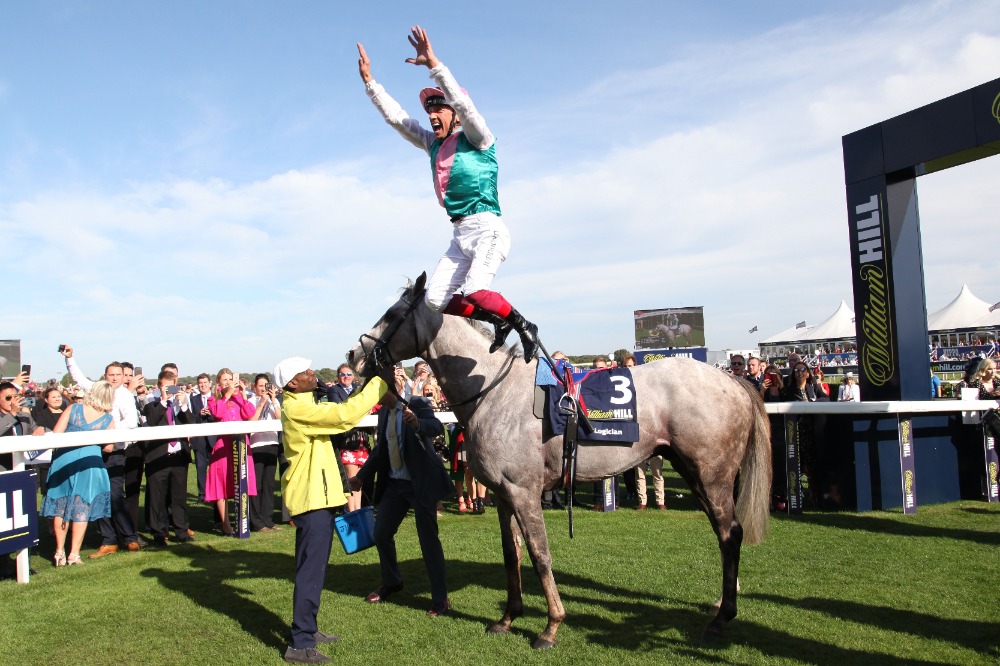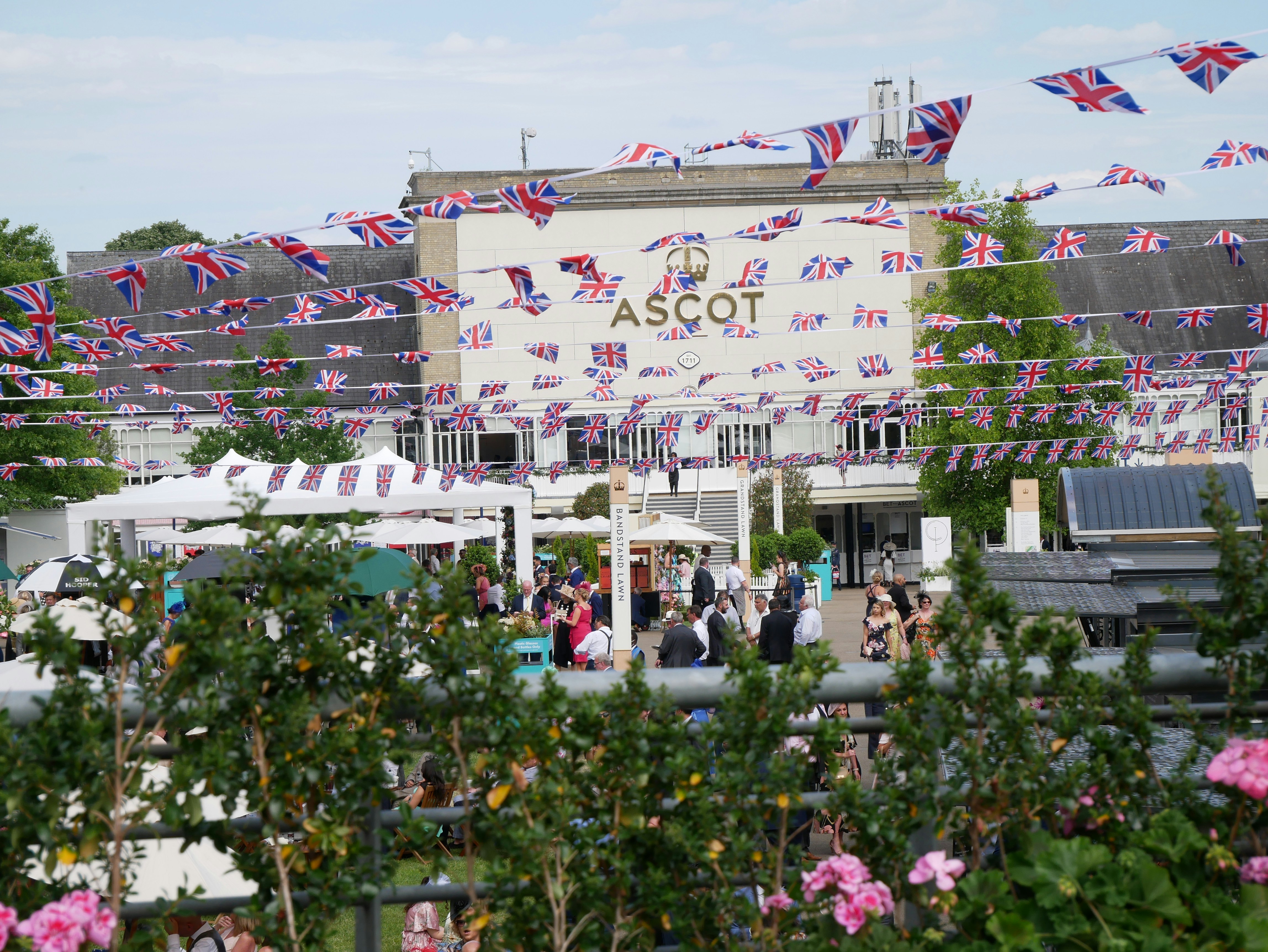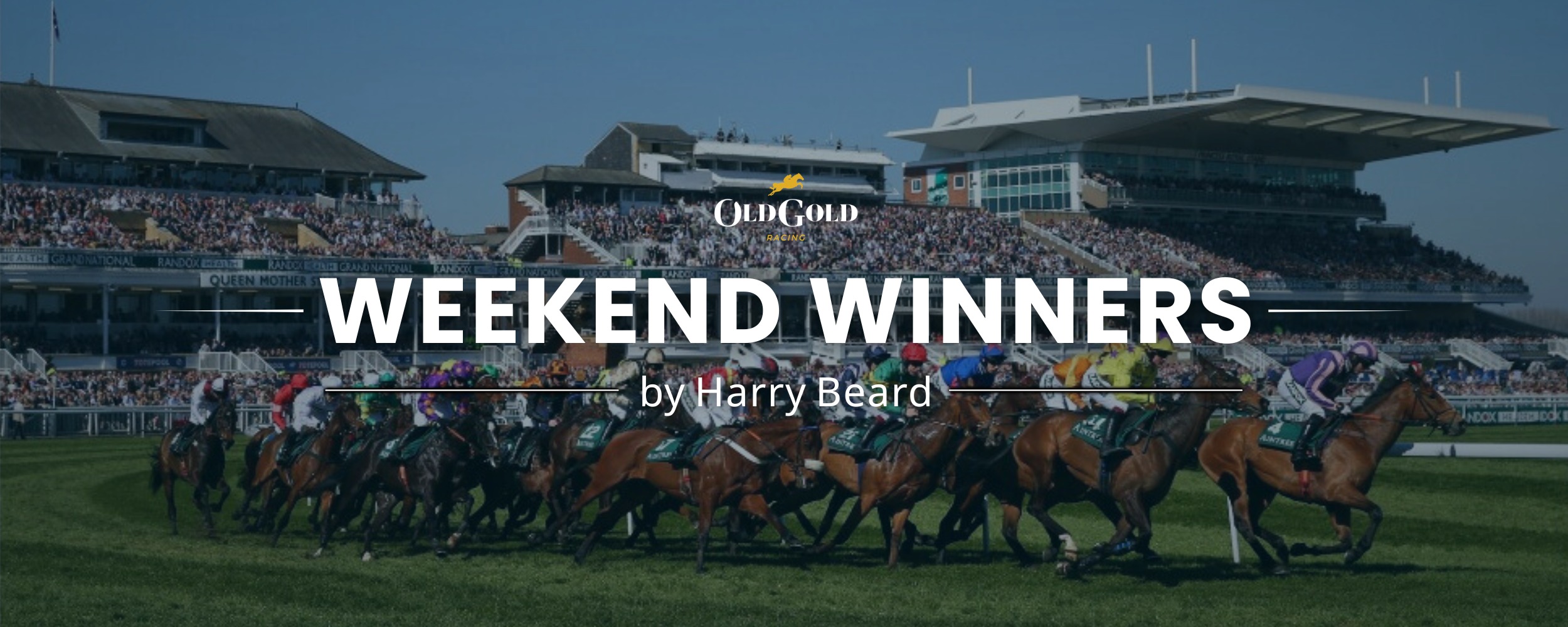Old Gold Racing
May 12, 2022Leap Of Faith
British novelist, screenwriter and newspaper columnist Boris Starling's last posting was as ghostwriter to Frankie Dettori for his autobiography, Leap of Faith.

The book is a close-up of the legendary character's life, in and out of the saddle.
Boris tells the story of Frankie's life replete with insightful observations about how he got to where he is today. Suffice to say, there was more than one leap of faith along the way...A few months ahead of the book's release, Boris shared some of his experiences with Frankie...
‘Mate’ came the call, ‘how much do you know about racing?’
‘A bit’ I replied, 'the word "bit" doing some seriously heavy lifting.'
‘Like what?’
‘I did Dick Francis books on Mastermind once, and I was at university with a maths whizz who, even then, was making millions by beating the bookies at their own game.’
‘Anything else?’
‘Yeah. Some races have got hurdles and some don’t.
Hardly Peter O’Sullevan but enough to get me a Zoom interview with Frankie Dettori – him sipping a beer in 28 degree Miami, me with a takeaway coffee in 2 degree Dorset. Shortly after that we agreed to work together on his autobiography LEAP OF FAITH, due to be published in October.
Ghosting someone’s autobiography is a complex but rewarding task. At various stages you have to be chronicler, interviewer, amanuensis and shrink, drilling down into what makes their story worth telling – and that is always their character. "Character is destiny" said Heraclitus, and he knew a bit.
Frankie is a character, and then some. He is showman, celebrity, entertainer; not just the most famous jockey in the world but, to the general public at least, more famous than all the others put together. He is voluble, funny, passionate and extrovert. His flying dismounts and Storm Force Ten celebrations are crowd-pleasers each and every time he does them. He’s presented Top Of The Pops, been a team captain on A Question of Sport and a contestant on Celebrity Big Brother. These are the currencies of the age, and he is completely at ease with them.
Being a character does not always mean having character; but Frankie has it, in spades. If ‘Frankie’ is the public persona, then Dettori – or perhaps L. Dettori as it says on his riding breeches (L for Lanfranco) – is the jockey, and damn good he is too; one of the best there is and, indeed, one of the best there has ever been. His racecraft is superb: his ability to get the best out of pretty much every horse he rides, his skill at pacing and positioning, and his bravery in putting himself in the mix time and time again. He is 50 now but is still riding as well as he ever has, and all of it after setbacks which would have persuaded a lesser man to pack up and head off into the sunset: a plane crash which nearly killed him, a very public split with the stable which had employed him for almost two decades, a six-month ban for taking cocaine, and a couple of seasons after his return when he could hardly buy a winner. During that lean spell his wife Cathy, with whom he has five children, gave him some tough love. "You keep telling us how fucking great you are" she said, "well, now’s the time to go out and prove it." And prove it he did, with a Derby win of such spinetingling emotion that at the moment of triumph he could no longer feel his body. There is style, sure - but a whole lot of substance too.
All this is manna to a ghostwriter but still I wanted more. There’s always a moment when you find the deep emotional truth of someone’s story, the thing that marks theirs out from everyone else’s in the same field. With Sam Warburton it was the contrast between the indomitable warrior on the pitch and the private man riven with doubts and frustrations; with Siya Kolisi it was the way in which his journey from township kid to world champion was an almost-too-perfect metaphor for the hope invested in the transformation of South Africa.
With Frankie, I realised, it was the horses.
This may sound obvious; what is a jockey without a horse, after all? But the way he speaks about them goes far beyond mere appreciation or admiration. He speaks with love, pure and simple. Here are these magnificent animals (it’s impossible to see a racehorse in the parade ring before a big race and not catch your breath at its beauty, at the muscles rippling beneath a coat gleaming in the sun, and at its keen intelligence), and the fact that he gets to ride them every day is a privilege beyond compare.
And, as always with love, there’s one who stands just a little above the others. The names of his special horses trip easily off the tongue: Dubai Millennium, Stradivarius, Golden Horn. But over and beyond these stands Enable. "When Frankie gets on Enable" said her trainer John Gosden, "he becomes as one with her: anatomically, mechanically, mentally." It wasn’t simply how many races Frankie won on Enable, though God knows there were enough of them, and the most prestigious ones too: three King Georges, two Arcs, a Breeders’ Cup. Nor was it the way they’d won them, usually by lengths but now and then by inches, for like her rider Enable could also grit it out on the days when everything didn’t come easy and shiny.
No, it was something simpler than that. Like any two beings who are properly in love, they understood each other perfectly and they brought out the best in each other. They took the other to places, emotional places, where neither had been before. When Enable was retired last autumn, Frankie cried for days; distraught that their partnership was over, thankful to have had it at all. That partnership wasn’t just the races and the adulation. It was all the times he’d go over to the stables just to see her and give her Polo mints. It was the simple joy they’d take in each other’s company. It was the dawn training gallops on the Limekilns above Newmarket with the sun coming up, plumes of breath billowing in frigid air, empty expanses of heath all around, and man and horse arrowing across the turf in perfect harmony, flying, flying, flying.'On the day the book was released Boris wrote:
'It was a blast to work on, as you’d expect with Frankie, but there have also been plenty of hard times in his life and the book doesn’t gloss over any of them.
I do like a good mnemonic, so I was delighted when the chapter titles fell very naturally into spelling out F-R-A-N-K-I-E. First up is ‘Father’: he and his dad, Gianfranco, have a layered and complex relationship punctuated by periods of silence which have lasted years but Frankie would also be the first to tell you that without his father he wouldn’t have achieved a fraction of what he has.
Next is ‘Responsibility’: the period when as a young man he has all the talent but no-one to rein him in from his excesses until his mentor, Barney Curley, tells him a few home truths over a game of snooker. Result: Frankie changes his whole attitude and wins champion jockey twice on the bounce.
‘Ascot’ of course, deals with the day which makes his career, even his life, and which may very well never be repeated: a September Saturday 25 years ago when he wins all seven races on the card and becomes an instant celebrity.
From that zenith to the nadir of ‘Newmarket’: a plane crash on the edge of that racecourse which kills the pilot, Patrick Mackey, and injures Frankie’s mate, Ray Cochrane, so badly that he has to retire from racing. For Frankie himself the scars are mental as much as physical, and it takes him years to fully recover; but recover he does, to eventually win the Derby at his 15th attempt.
Next comes ‘Knockdown’: gradually being frozen out at Godolphin, being busted for cocaine taken during a fit of anger and frustration, serving a six-month ban, finding when he returns that he can’t get a decent ride for love or money, and being this close to jacking it all in before his wife, Catherine, gives him some tough love.
‘Inspired’ is how he climbs the mountain for a third time: the resumption of his partnership with the trainer John Gosden who 20 years before took a chance on the younger wayward Frankie when few others seemed inclined to, and a second Derby win which is so emotional that at the moment of triumph Frankie can no longer feel his body.
And last but by no means least is ‘Enable’: the horse who stands above all the others he’s ever ridden, the one who takes him to places he’s never been, and the one he loves so much that when she retires he goes home and cries for two days straight.
Rise, fall, rise, fall, rise: these are some of storytelling’s most basic building blocks, and boy does Frankie have a story to tell. He lives his life at 100mph, and paradoxically one of the few places he’s ever 'still' is on the back of a galloping horse. That’s his zone, that’s his place, that’s where all the million crazinesses of being him fade away.
And those crazinesses, despite being the most obvious things about him are also, in some ways, the least interesting ones. The celebrity is why people know him and why many will buy the book, but I hope they come away after reading it with, if not a different image of him, then at least an expanded one. He is, as the blurb says, a man of great passion, positivity and perseverance, but he’s also a man of great talent, ambition, sensitivity and love, and there’s a lot in his story for all of us one way or another.'

Written by:
Old Gold Racing
Share article:


